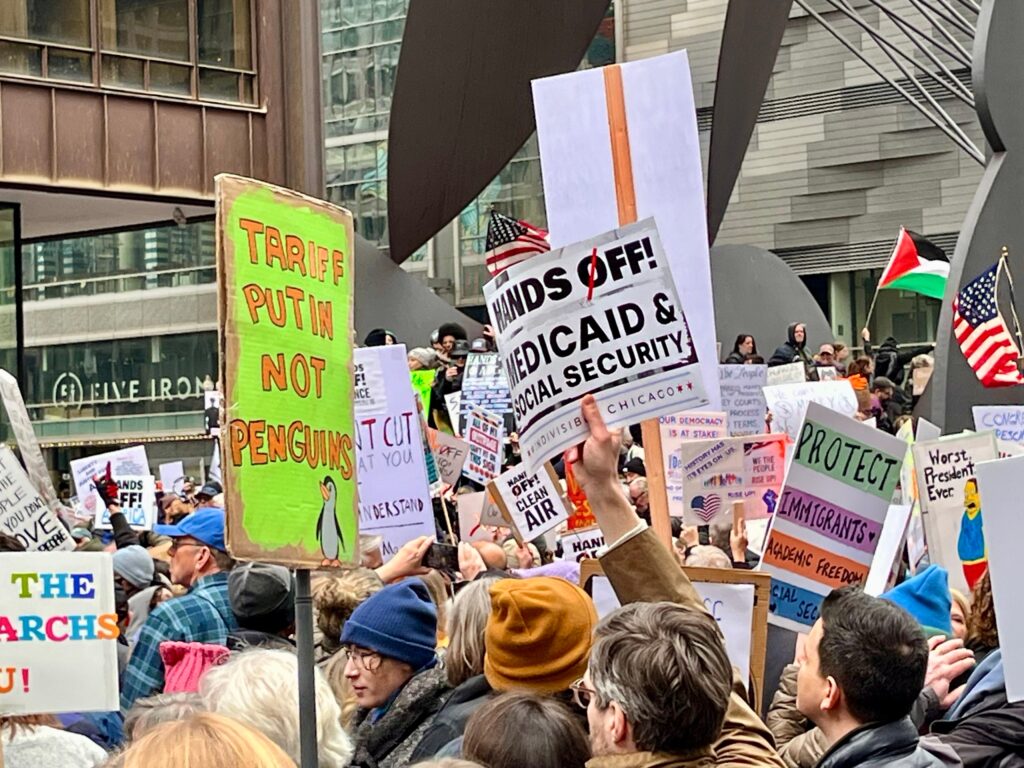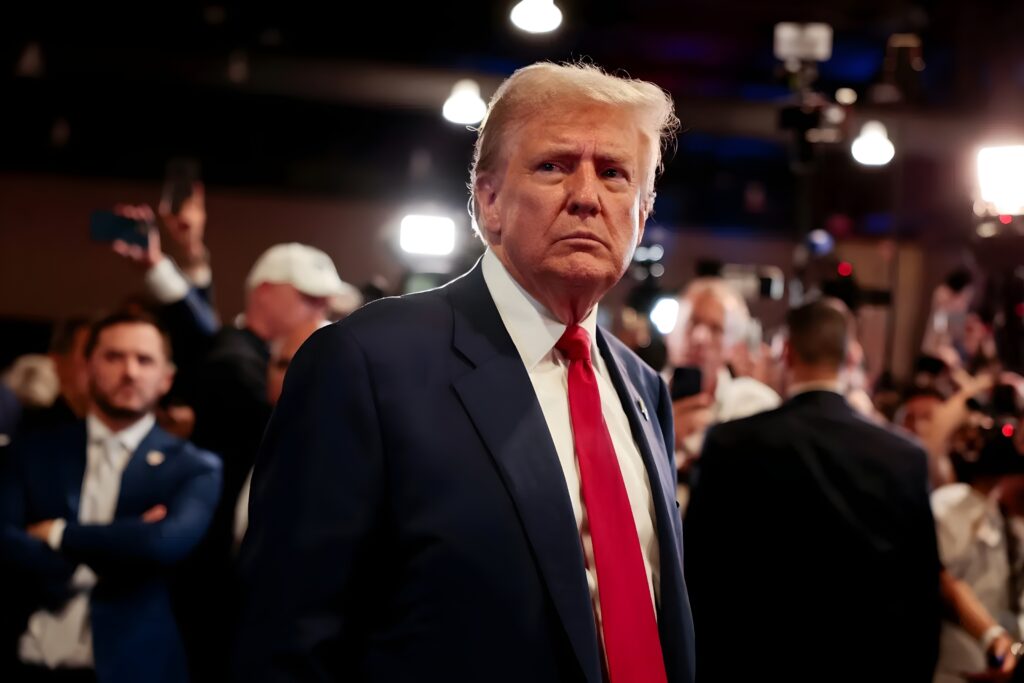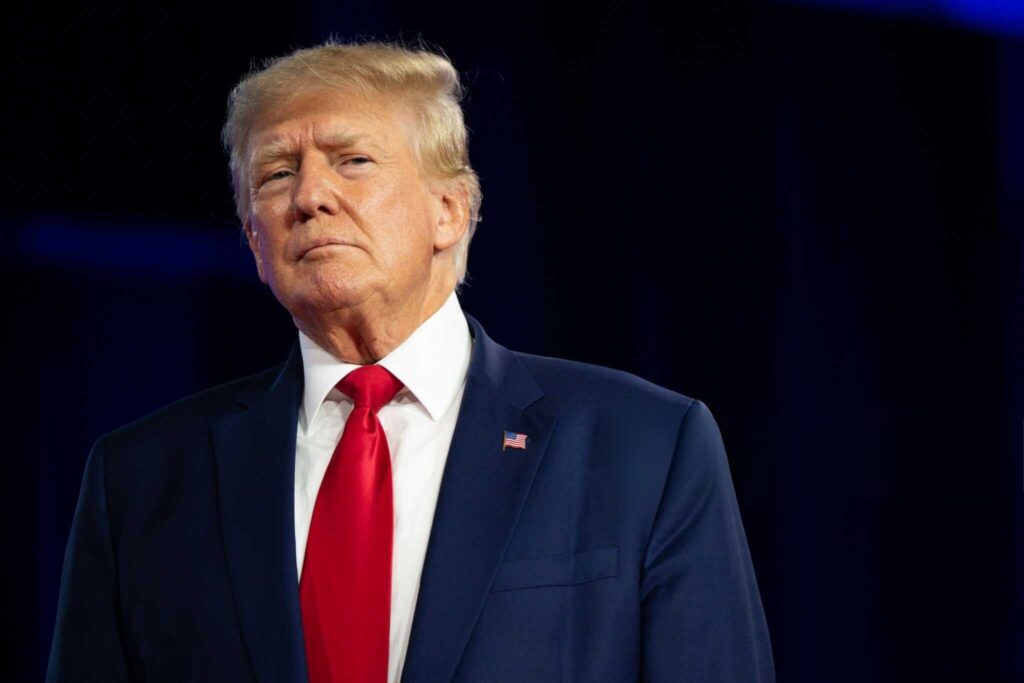“You, sir, under historic scrutiny, were proven innocent.” Donald Trump to Brett Kavanaugh, Oct. 8, 2018
“The President addressed the comments back during the campaign. We feel strongly that the people of the country also addressed that when they elected Donald Trump president.” Sarah Huckabee Sanders on Donald Trump’s taped comments bragging about groping women, Dec. 7, 2017
“The White House response is that he’s not going to release his tax returns. We litigated this all through the election. People didn’t care. They voted for him.” Kellyanne Conway, Jan. 22, 2017
——
Not for the first time, and probably not for the last, the Trump administration is trying to persuade its audience of a deeply pernicious version of “might makes right:” that a political victory counts as moral vindication. The case at hand is the idea that now-Justice Brett Kavanaugh’s confirmation by the Senate somehow disproves the allegations of sexual assault against him. Trump was unusually explicit about this on Monday, but expect to hear variations of it from him, other members of his administration, and the talking-points-reciting apologists in Congress and elsewhere for a long time to come.
No one actually, consciously believes that a political victory can prove the victor innocent of charges that were under dispute at the time. In any dispute about whom to elect or appoint to a public office, many different issues are in play and the decision-makers (voters, senators, etc.) might decide that a particular charge is true, or probably true, and yet outweighed by other considerations. Or the decision-makers might think the charge is false and be wrong about that, since the election or the confirmation hearing wasn’t a criminal trial and didn’t involve the careful presentation of all the evidence. (And even a not-guilty verdict at a criminal trial doesn’t prove innocence; it only says that proof beyond a reasonable doubt hasn’t been provided to the satisfaction of these jurors and/or this judge.) Stated generally, there’s surely nothing controversial about any of this. Treating an election or a confirmation vote as proof of innocence is an updated version of the superstition associated with trial by combat: If I were guilty, the gods wouldn’t have let me win.
And yet the repeated use of this kind of might-makes-right argument by the Trump administration doesn’t strike their audience as jarringly absurd. It resonates, and lends itself to easy repetition. Why?
Part of the answer, of course, is simply that this is the kind of thing Trump does, and does well. Big, absurd lies have their own value as demonstrations of power. The Washington Post’s Greg Sargent has been emphasizing since Sean Spicer’s term-opening lies about inaugural crowd size that the administration relies on a strategy of clouding the existence of a shared reality based on shared facts (remember Conway’s “alternative facts” or Rudy Giuliani’s repeated variations on Pontius Pilate’s shrugging question, “What is truth?”), with the effect of solidifying the Republican base’s resistance to any evidence of wrongdoing. That such nonsense “triggers the libs” is a bonus.
But some nonsense works better than others, and this nonsense both rhymes with some truths and rests on a very widespread kind of mistaken belief.
Trial by combat was an absurd method for discovering the truth, except insofar as the participants believed in it and guilty parties therefore didn’t see it through. I have no view on how widespread such belief was, but in at least some eras it probably resulted in better-than-random outcomes: The innocent were more likely than the guilty to use it, and half the time or so they were therefore acquitted. But its social value probably survived the loss of the associated superstition, and that value was to settle the matter. The ability to reach a conclusion is a key virtue in a legal system; the endless spiral of the blood feud can be replaced with a procedure that people can coordinate around as an end point.
The prohibition on double jeopardy in criminal trials provides a modern kind of closure and conclusion. The important doctrine of res judicata does the same in civil trials, preventing the same dispute from getting refought over and over again by losing parties seeking out new courts. There’s a real value to these rules, and res judicata has been metaphorically extended beyond the courtroom with the increased adoption of the word “relitigate” in political contexts — always as something that one should not do.
The metaphorical extension has something to be said for it. Max Weber cautioned us against treating political disputes — including war — as an excuse to assign guilt or to wallow in old feuds. “Everything else is unworthy and will enact its own retribution… Every new document that comes to light after decades have passed will revive undignified quarrels and stir up all the hatred and anger once more…”
He wrote these words while the Treaty of Versailles was being negotiated, and their warning not to compound the injury of loss with the insult of punishment looks wise in that context. The end of the next World War, though, teaches us that this wisdom has limits, and sometimes guilt is very important to determine indeed. And if this is true for wars — which, like trials, must be allowed to really conclude — it’s that much more true for ordinary political life that just always goes on happening.
The inchoate idea that election results reveal some kind of truth that can’t be revisited finds explicit defense in Rousseau: The losers of a vote learn that they were mistaken even about what they themselves wanted. But it neither began nor ended with him; the saying vox populi, vox Dei is well over a thousand years old. And when we remember that ancient Greek democracies relied on lottery rather than election (which was considered the tool of aristocrats), and that introducing an element of chance has a traditional association with a moment of letting the gods decide for us, we can see something similar to the superstition of the trial by combat at work.
There is an upsurge of interest in selection by lottery in contemporary political theory. I don’t really know what to think about that overall, but the part of it that appeals to me is that we don’t think about random chance the way the ancients did. Maybe we’d have a harder time mistaking the outcome of a coin flip for the vox Dei.
What I hope is that we can instead learn to see elections, referenda, confirmations, and similar moments in politics as just moments: contingent, filled with accident and chance, settling one question for the moment — who will take office? — but not drawing a curtain over the disagreements that preceded it. In a particularly important passage of his essay “Realism and Moralism in Political Theory” the late Bernard Williams wrote:
A very important reason for thinking in terms of the political is that a political decision — the conclusion of a political deliberation which brings all sorts of considerations, considerations of principle along with others, to one focus of decision — is that such a decision does not in itself announce that the other party was morally wrong or, indeed, wrong at all. What it immediately announces is that they have lost.
This is precisely the victor’s modesty that was absent in, for example, Trump’s remarks on Kavanaugh. The opponents of Kavanaugh’s confirmation have lost. And that’s all that we should say for sure.
Does it follow that relitigation can continue forever in politics, that there can be no closure? Not quite. We’re never done arguing about the political past: What caused this era of economic growth or that of slowdown? Was the war entered into too slowly, teaching us the dangers of appeasement, or too rashly, teaching us the dangers of warmongering? What groups have suffered which injustices that call for remedies today? Those questions of historical interpretation are always with us in current politics, and should be.
But in the normal course of healthy politics, criminal charges shouldn’t hang over everyone’s head. The urge to criminalize ordinary political disagreement is another species of the toxic belief that the democratic people naturally forms a united whole, a belief that the Founders struggled with in the era of the Alien and Sedition Acts but gradually overcame with the development of permanent party competition. Such ordinary political disagreement should normally be forward-looking: what each party proposes to do, informed by historical judgments about what programs have worked well in the past.
The problem is that preventing the criminalization of ordinary political disagreement must not be a barrier to the prosecution of actual criminal activity, whether it be sexual assault or tax evasion or perjury or the obstruction of justice. Nor may it interfere with retrospective judgments of misconduct in office of the sort that rightly generate impeachments, such as violations of the emoluments clauses of the Constitution. The idea that ordinary politics does not include the threat of criminal prosecution rests on the background thought that ordinary politicians are not credibly chargeable with criminal activity or abuse of office for such aims as personal enrichment. Matters are necessarily different when procedural victors may also be, in their personal capacities, guilty of crimes. In such cases the reason for provisional settlement in ordinary political disagreement doesn’t apply (we’re not criminalizing disagreement); neither does the reason for provisional settlement after a trial apply (the question at hand hasn’t ever been squarely addressed by a competent body; it hasn’t been litigated the first time.) The reasons for provisional settlement provided by either trials or ordinary political disagreement don’t apply.
Of course, claims that elections or procedures have stood in the place of vox Dei are that much more absurd when elections are won through technically legitimate rules that nonetheless endorse the second-place candidate in terms of vox populi, or when confirmations are provided by senators who represent a much less than a popular majority of the country as a whole. I believe they are absurd in any case — a nomination by a popular-majority president followed by confirmation by a popular-majority Senate still would not stand for vox Dei and would not constitute proof of innocence — but the absurdity is multiplied when what has taken place is really the equivalent of a series of coin tosses.
The boundaries to draw here are matters of judgment, not of bright-line rules. There is a genuine danger of procedural victors engaging in prosecutorial overreach to punish those who have only lost, and to create a veneer of criminal prosecutability to cover for it. But still, procedure is not substance, politics is not law or morality, and victory is not vindication. When the winners treat winning as res judicata, when the powerful proclaim that their gained-by-the-flip-of-a-coin power constitutes judgment from the heavens of their innocence, when they treat their might as making right, then we know we’re being lied to.
——
Jacob T. Levy is Tomlinson Professor of Political Theory and Director of the Yan P. Lin Centre for the Study of Freedom and Global Orders in the Ancient and Modern Worlds at McGill University; author of Rationalism, Pluralism, and Freedom and scholarly articles including, most recently,”Contra Politanism” and “Political Libertarianism;” and a Niskanen Center Senior Fellow and Advisory Board Member.





